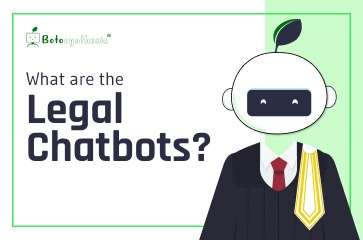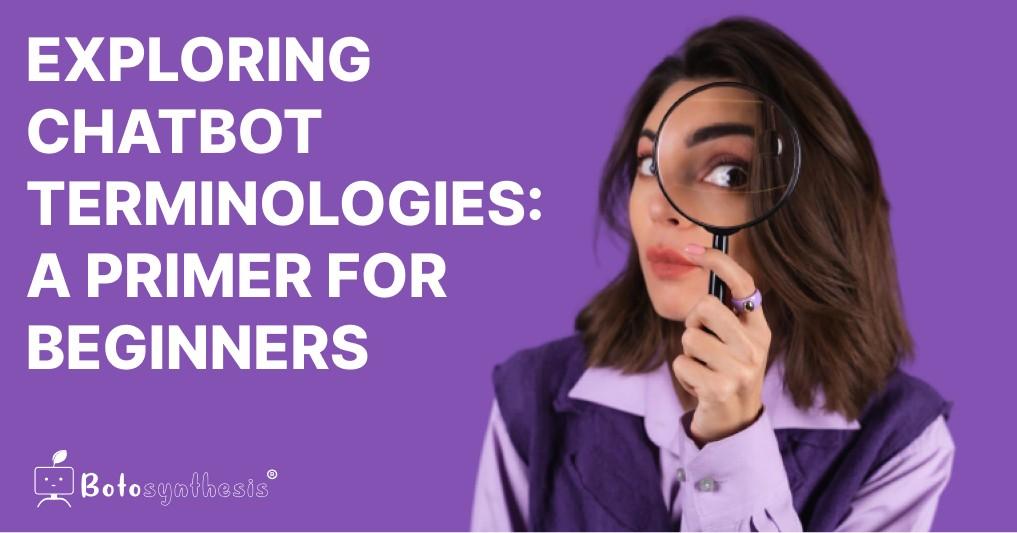Chatbots have taken an important role in this emerging world today. One may easily find a chatbot integration with almost every application or a website from any sector you take — healthcare, education, entertainment, food and beverages, music industry, etc. The main purpose of chatbot integration was to eliminate a human presence at places where mistakes are more likely to happen, where repetitive tasks can be done easily, data collection, or intelligently saving an employee’s wage. But have you ever noticed that our legislative services, which ranks with undivided seriousness, busy schedules, and hectic tasks crave for a chatbot?
Well! That’s why this time we are up with an important topic to be discussed with you — Legal Chatbots.
Legal chatbots are becoming exponentially famed because of some unbeatable reasons, like providing legislative information, being accessible, guiding the justice path, and doing legal operations for the customers and the legal professionals. It is often found that a customer who is in a need of or is seeking legal activities, is equipped with a lot of questions, clarifications, and doubts. And for a legal professional/ lawyer to indulge in a conversation consumes an ample amount of time and mental patience. Hence, to modify this practice, save time, and organize it in a better way the low-level functions of an attorney are fulfilled by a chatbot, and the higher-end tasks of taking all that collected data and considerations forward are managed by the lawyer himself/herself. This way both the subjects of this scenario get the appropriate tasks to accomplish.
Some of the tasks of a Legal Chatbot are –
- SCHEDULE A LAWYER-CUSTOMER MEETING: Everything starts with a meet and often a lot of negotiations and time fixing discussions are laid to come to a conclusive end. If a chatbot interacts with the customer, fix a meeting, and then share that information with the lawyer. This methodology would be very helpful to the lawyer.
- VERIFY THE LEGAL DOCUMENTS: Verifying a document is quite tedious. If done with a digital device, then yields 100% accuracy, the process becomes fast, the frustration level reduces, and the data collection is very organized.
- ANALYSIS ON LEGAL DOCUMENTS: Out of the collected data and the user documents, the data is put used by the AI and the ML algorithms for learning and eventually showcases possible future outcomes.
- GOOD ACCOUNTING OF THE LEGAL DOCUMENTS: If the document accounting is done by a chatbot, then it is quite trustworthy, organized, easily accessible, and comes up with precise information.
- CLARIFYING CUSTOMER’S QUERIES: A customer is always up with a lot of queries with legal matters. If a lawyer goes on to clarify these doubts, then there are chances he may lose his patience and his efforts may drain off from doing higher intellectual level tasks. So it is advisable to use these chatbots at a preliminary level, to clarify basic customer doubts.
- GENERATE LEADS: They can enhance leads generation, and manage all those interested customers to successful leads. By using natural language to converse with people and solve minor legal violations. Chatbots qualify the leads by gathering data and provide clarifications.
- CARRY OUT DUE DILIGENCE: It is the investigation before a potential agreement to confirm all the facts. It is very consuming and monotonous for lawyers. It is helpful when undertaking a purchase agreement and needs to audit liabilities to evaluate true commercial potential.
- A COMFORTABLE SPACE TO THE CUSTOMERS: Sometimes there are situations and conditions of a person, which doesn’t comfort him/her while sharing with others. There is a constant fear of getting judged, misunderstood, or things going unnoticed and felt lighter. So, in this scenario placing a non-living object which clarifies each doubt of him/her would be a better option.
The Future of Legal Chatbots?→ There is no exact figure on the status and expansion of legal chatbots in the world in the coming years. But there is a strong belief that we would be seeing legal chatbots in the coming years almost everywhere. We are already meeting legal chatbots doing work for notaries, private lawyers, prosecutors, judges, etc. Although certainly, these legal chatbots will not be able to replace legal professionals entirely, since no one can beat the emotional quotient of a human being but they will take over a lot of attorney’s responsibilities and will be beneficial for the lawyers and their clients alike.








